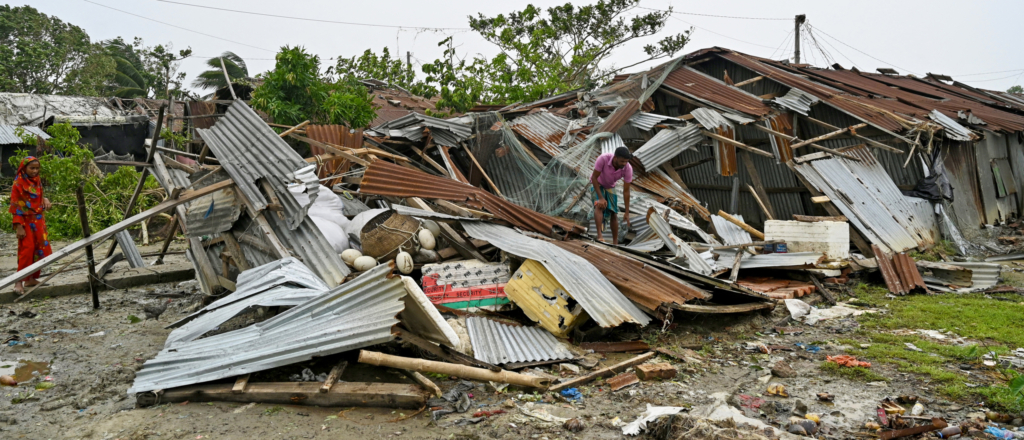Crucial Climate Conference in Bonn to Address Funding Commitments
The forthcoming climate conference in Bonn will serve as a platform for state representatives to address longstanding unfulfilled commitments and insufficient financial support from polluting nations. The conference, commencing on 3rd June and running through to the 13th, is a precursor to the COP29 in Azerbaijan. Participants are urged to make significant strides towards agreeing on binding commitments to increase funding and aid lower-income states in their struggle against climate change, according to Amnesty International.
The recommendations laid out by Amnesty International are set to guide the negotiations in Bonn and the subsequent COP meeting in Baku in November. Parties at the conference are encouraged to focus on enhancing pledges to fund climate adaptation and mitigation, besides adequately funding the Loss and Damage Fund, which supports communities and individuals affected by unavoidable climate impacts.
“The current climate finance available to combat the escalating climate crisis has been markedly insufficient. We need drastic changes to keep global warming within 1.5°C above pre-industrial levels. The requirements of those most affected by this crisis will multiply with each increment of global warming, causing the costs to skyrocket,” expressed Ann Harrison, Amnesty International’s Climate Policy Advisor.
Harrison further emphasized the need to apply the ‘polluter pays principle’, pointing out that historically high greenhouse gas-emitting countries have consistently failed to meet their existing funding pledges. As such, the Bonn conference represents a crucial opportunity to alter the course.
Amnesty International asserts that lower-income countries’ ability to adapt to climate change hinges on their access to sufficient, reliable, grants-based financing from high-income emitting countries and high-income fossil fuel producers. A predictable pipeline of funding that does not exacerbate debt is needed to address the damage inflicted by global warming and to support a transition to zero carbon economies.
Fossil Fuels and Human Rights
Delivering on the pledge made at last year’s COP to transition away from fossil fuels and commit firmly to phasing out all fossil fuel production and use is critical to protecting human rights, states Amnesty International.
“Human rights must guide all climate decisions nationally and internationally. This includes guaranteeing meaningful participation in these meetings for civil society organizations, representatives of Indigenous peoples, and all other marginalized groups on the frontlines of climate change. It is also crucial to ensure the protection of civic space and the rights of participants, including the rights to peaceful protest and freedom of expression,” affirmed Harrison.
Amnesty’s recommendations outline the path forward, anticipating an agreement at COP29 for an enhanced New Collective Quantified Goal (NCQG) on Climate Finance. This would secure significantly higher and guaranteed financing for climate adaptation and mitigation in lower-income countries. The current minimum NCQG pledge of US$100 billion a year from 2020 to 2025 has been met only once, according to the most recent data available.
States need to agree on how a pledge to at least double climate adaptation finance by 2025 will be met, while understanding that the actual needs are considerably greater. A step-up in efforts is required as adaptation finance lags far behind commitments for mitigation, which urgently needs to be addressed.
Potential funding sources could include the estimated US$480 billion a year lost by states to large-scale tax evasion and aggressive tax avoidance. The IMF calculates that another massive potential source of climate finance could come from the withdrawal of the US$7 trillion of state subsidies and tax breaks provided annually to support the fossil fuel industry.
All climate funding must be provided in the form of grants, not loans, to avoid increasing the indebtedness of lower-income states. Adequate funding for climate action is an obligation for some states under the UNFCCC and the Paris Agreement, and for all states in a position to do so, based on the principle of international cooperation and assistance under international human rights law.
Loss and Damage Fund
It is equally critical for the Loss and Damage Fund, designed to help developing countries recover from climate impacts like storms or floods, to receive adequate funding. It is imperative that the fund becomes operational and can disburse funds within the year, ahead of this year’s COP.
Conference Details
The Bonn Climate Change Conference is scheduled to take place from 3-13 June 2024, while COP29 will occur from 11-22 November 2024 in Baku, Azerbaijan. Both meetings will take place under the United Nations Framework Convention on Climate Change. Amnesty International campaigns for the swift, fair, funded, and perpetual phase-out of fossil fuels and a transition to renewable energy that complies with human rights. They also campaign for the protection of free expression and peaceful protest in relation to climate action.
Original Story at www.amnesty.org
